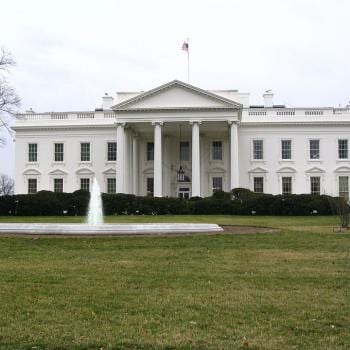The Journal of Medical Ethics has posted an article defending infanticide. After the young authors received a lot of hate mail, the editor, Julian Savulescu, ran an editorial comment posted on the JME blog.
Here’s an excerpt from the editorial:
Many people will and have disagreed with these arguments. However, the goal of the Journal of Medical Ethics is not to present the Truth or promote some one moral view. It is to present well reasoned argument based on widely accepted premises. The authors provocatively argue that there is no moral difference between a fetus and a newborn. Their capacities are relevantly similar. If abortion is permissible, infanticide should be permissible. The authors proceed logically from premises which many people accept to a conclusion that many of those people would reject.
Of course, many people will argue that on this basis abortion should be recriminalised. Those arguments can be well made and the Journal would publish a paper than made such a case coherently, originally and with application to issues of public or medical concern. The Journal does not specifically support substantive moral views, ideologies, theories, dogmas or moral outlooks, over others. It supports sound rational argument. Moreover, it supports freedom of ethical expression. The Journal welcomes reasoned coherent responses to After-Birth Abortion. Or indeed on any topic relevant to medical ethics. [my emphasis added]
The critique of the article strikes me as low-hanging fruit so I won’t address it here; I’m sure it will get plenty of press elsewhere. What I’m interested in is the editorial position, which strikes me as a kind of microcosm of the liberal assumptions of contemporary Western academia.
“The Journal does not specifically support substantive moral views…”? Really? Isn’t (academic) liberalism a substantive moral view, of the sort that might be stated “listen to all arguments, regardless of how morally offensive they are”? Later in the same editorial, Savulescu opines, “More than ever, proper academic discussion and freedom are under threat from fanatics opposed to the very values of a liberal society.” His assumption, shared by many academics, is that modern Western liberalism amounts to a kind of “morality-free zone,” a position from which academics can critique other (read: conservative, or Christian, or Muslim, or indigenous, etc) moral positions which do not fit their ideology.
I find that the dogmatism of Western liberalism is remarkably similar to the old dogmatism of Western Christendom. Of course the JME promotes one moral view over others. Of course it supports a dogma over others; it is either naive or inauthentic to claim otherwise. The JME accepts arguments that are “based on widely accepted premises.” Which ones? What about, for example, the widely accepted premise that God became a human being in Jesus Christ? Or the widely accepted premise that God spoke directly to the prophet Mohammed?
The claim that the JME–or modern academia, for that matter–is morally neutral is absurd. The JME makes moral claims as much as any religious group does. UCLA and Ohio State make moral claims no less than Brigham Young or Catholic University of America. The most fundamental type of moral claim is the one that says “we think this idea is worth talking about.” The JME, in publishing an article supporting infanticide, has done just that.











